






A garden filled with fragrant flowers, lush shrubs, winding paths, and raised beds is a beautiful thing to behold. Now, imagine for a moment that you're blind: How do you navigate those paths? Or perhaps you suffer from memory loss or mental illness: Do the flowers present obstacles to your sense of well-being? What about physical challenges such as a loss of a limb: Do the raised beds make it possible for you to get close to the flowers or work the soil? Those are just a few considerations for people in need of special attention in the garden.
A whole profession -- horticultural therapy -- is devoted to using gardens to assist people from all walks of life and with all sorts of needs. For individuals facing mental illness, age-related dementia, physical challenges, and other health-related limitations, accessibility issues can affect both enjoyment of and participation in garden activities. For example, a brain injury may affect a person's memory, attention, and endurance, therefore influencing the way they are best able to garden and to enjoy the garden.
continue reading below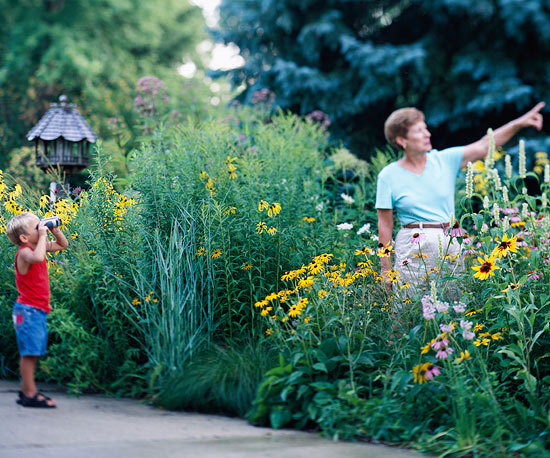
"Sometimes it's hard to isolate the effects of these issues, and generally speaking there is overlap," says Matthew Wichrowski, a horticultural therapy practitioner and board member of the American Horticultural Therapy Association. "Depending on the nature and extent of the injury, a chronic disease or traumatic injury can leave people with challenges in all of the areas mentioned. Social areas are often affected as well. Generally, we try to look at things holistically."
A few thoughtful design changes can help to improve the enjoyment and use of gardens for those coping with mental, emotional, and physical challenges. While the challenges people face are multifaceted, a garden designed with accessibility in mind can accomplish multiple goals and provide additional benefits, too.
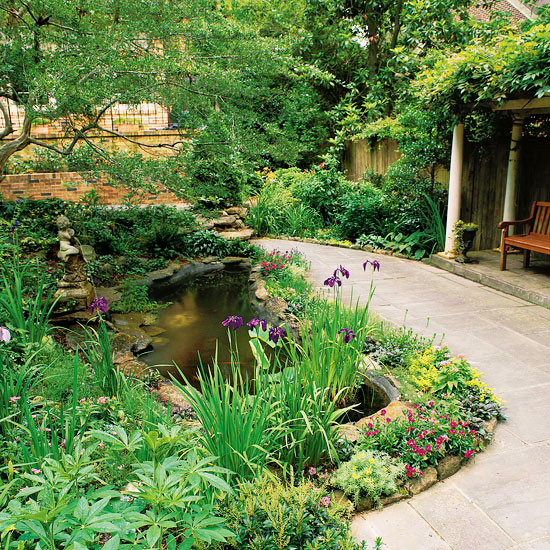
• Be cautious about using or avoid using poisonous or thorny plants.
• Examine the garden from the perspectives of others. The goal should be to create a garden challenge that encourages without discouraging. "A person should stretch a little in accomplishing their goals but not be frustrated," Wichrowski says. "Tasks can be modified or certain tools used to help make the activity successful."
• Rigorously evaluate path materials. Avoid anything that causes glare and minimize jarring transitions from one material to the next. The considerations may seem negligible to you but can make all the difference to a person with challenges. "We want to enable participants," Wichrowski says. "Success builds confidence and self-image and leads to a fun time in the garden."
Create a garden path.
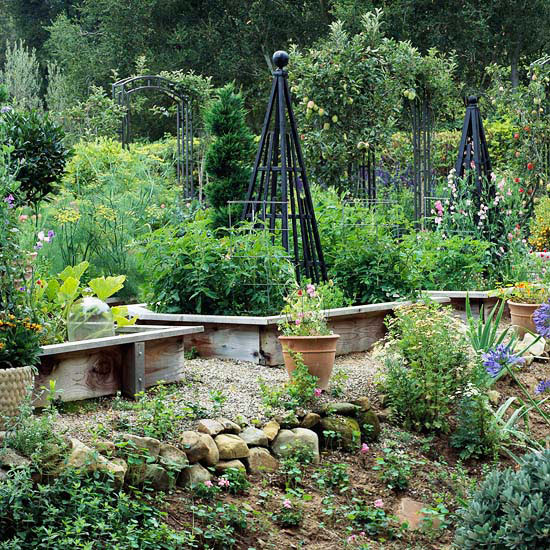
• Know the gardener's abilities and limits. Gardening can accommodate various types of needs. "Gardening is very gradable so that a person can benefit from taking care of one plant or a whole garden plot if they have the ability and interest," Wichrowski says. "From a therapeutic perspective, gardening activities can help with endurance, strength, fine motor skills, and range of motion, and it can provide aerobic benefits."
• Boost sensory appeal. The textures and fragrances of a garden may be a powerful impetus for people with physical limitations. "The sensory aspects of gardening help make it enjoyable and is a motivational factor for many people," Wichrowski says.
Plan a fragrant garden.
• Search out specific tools and design methods. "Specialty tools, raised beds, container gardening, and individually built beds allowing wheelchairs to fit underneath can help a person be successful if they have physical or cognitive challenges," Wichrowski says.
Learn how to build a raised bed.
See our collection of container recipes.
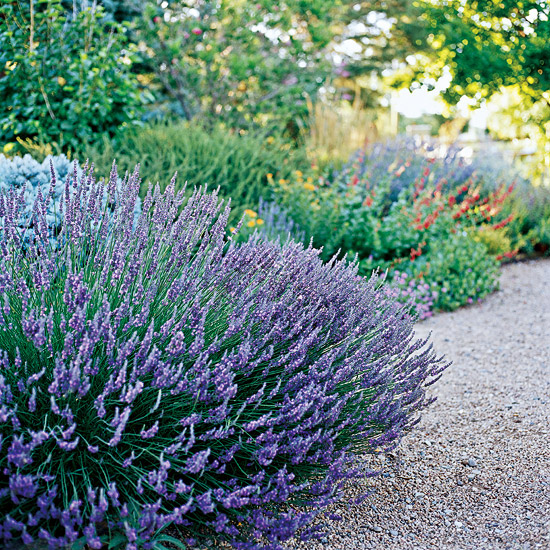
• Provide soothing garden areas -- lots of similarly colored plants and contemporary lines without clutter. People with brain injuries, in particular, often benefit from a space in which to calm themselves. Difficulties with "memory, attention, fatigue, and flooding may interfere with daily activities, so a garden can be a soothing place to recover from the overstimulation of the world," Wichrowski says. "Looking at the garden is fascinating in a relaxing way and helps clear the mind of its clutter."
Explore one-color garden plans.
• Keep the garden inviting with spots to enjoy different types of landscaping -- a sunny spot, a shady area, perhaps a water feature. Gardens are great for reducing stress -- key to minimizing anxiety -- and improving moods, and gardens that have a variety of areas will allow users to move about and respond to internal cues. "When we are in a space that has varied sensory interest, easily navigable pathways, diversity in plant life, and other natural elements such as water or wildlife, we feel safe and supported by our environment and our mood improves and stress levels drop," Wichrowski says.
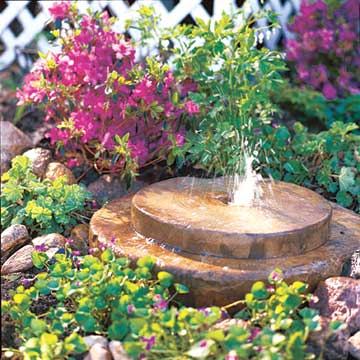
• Use the garden to respond to dementia-specific needs. A range of research shows certain accessible gardening features, such as circular paths in a fenced-in or walled space, statues or fountains as landmarks, and sensory plants that evoke memories, can be helpful to those suffering from dementia. Research to find out which triggers may help to calm and which don't before designing your space. "For people with dementia, the garden is a soothing place where agitation can be decreased," Wichrowski says.
Consider a water feature.
• Provide spots for repetitive gardening tasks, such as weeding a particular area. This can help promote garden skills in people with memory difficulties.
Use our free planner to design a garden.
Copyright © www.100flowers.win Botanic Garden All Rights Reserved